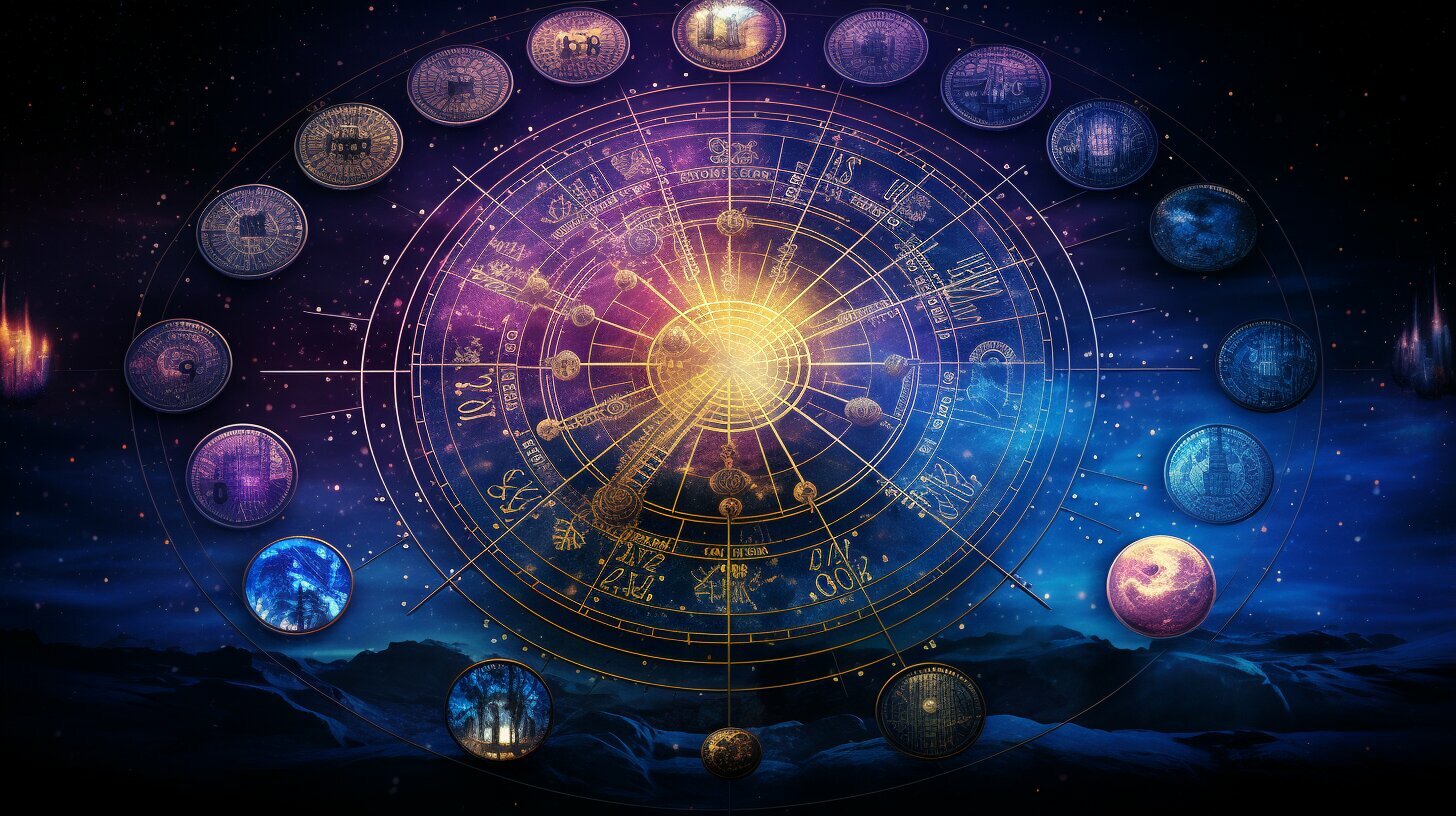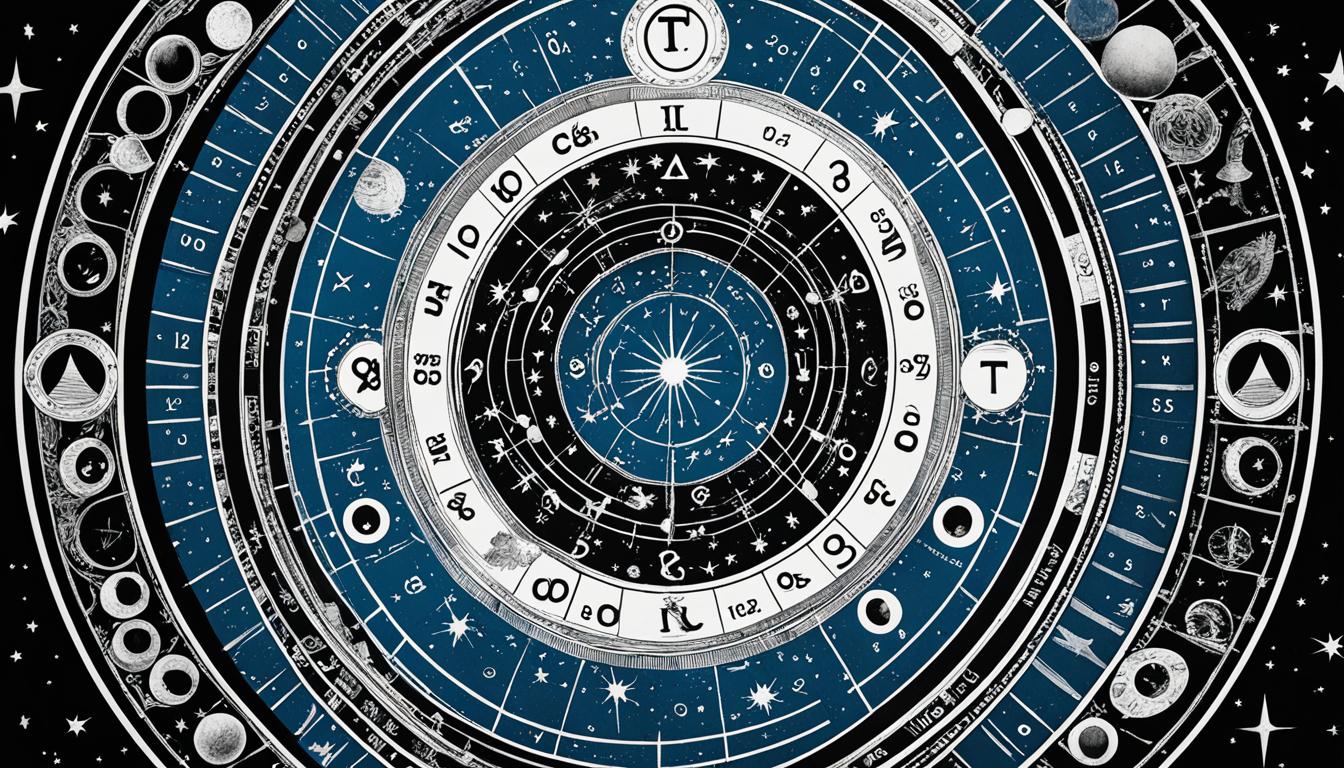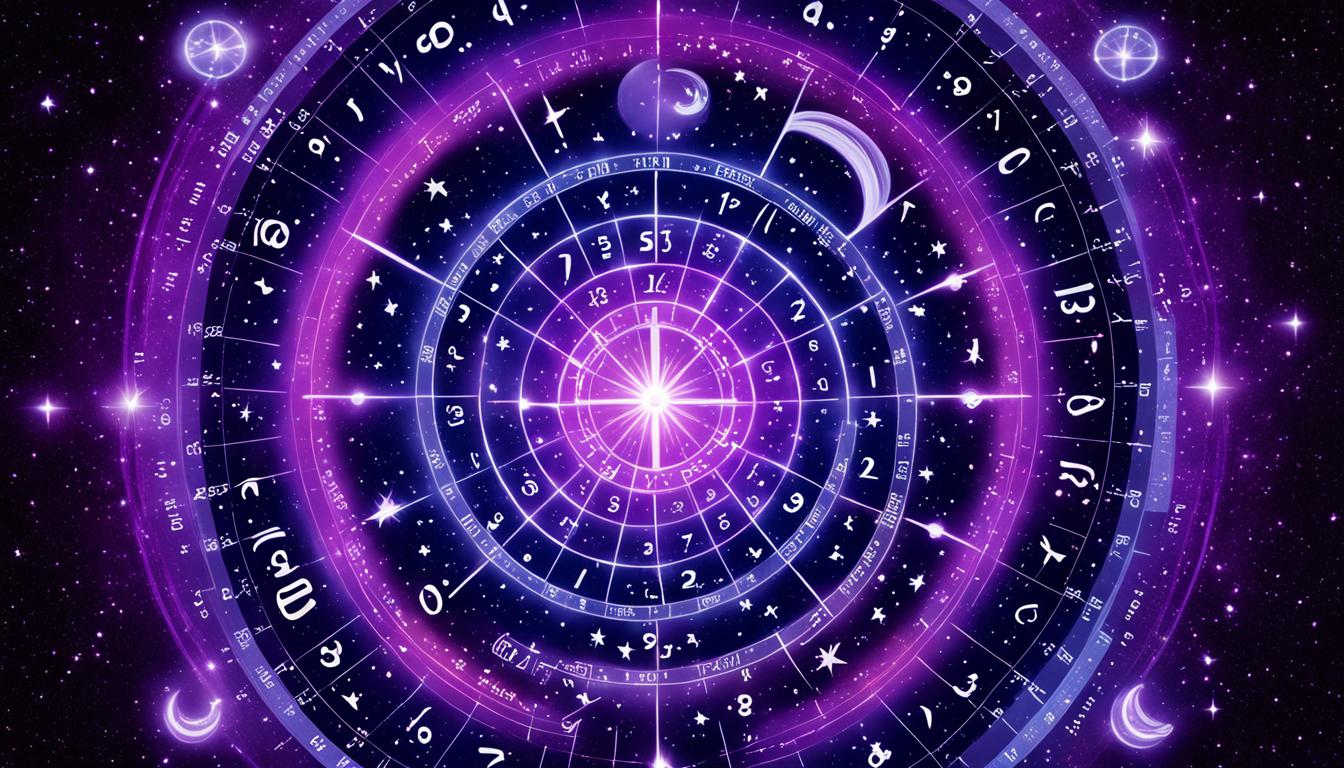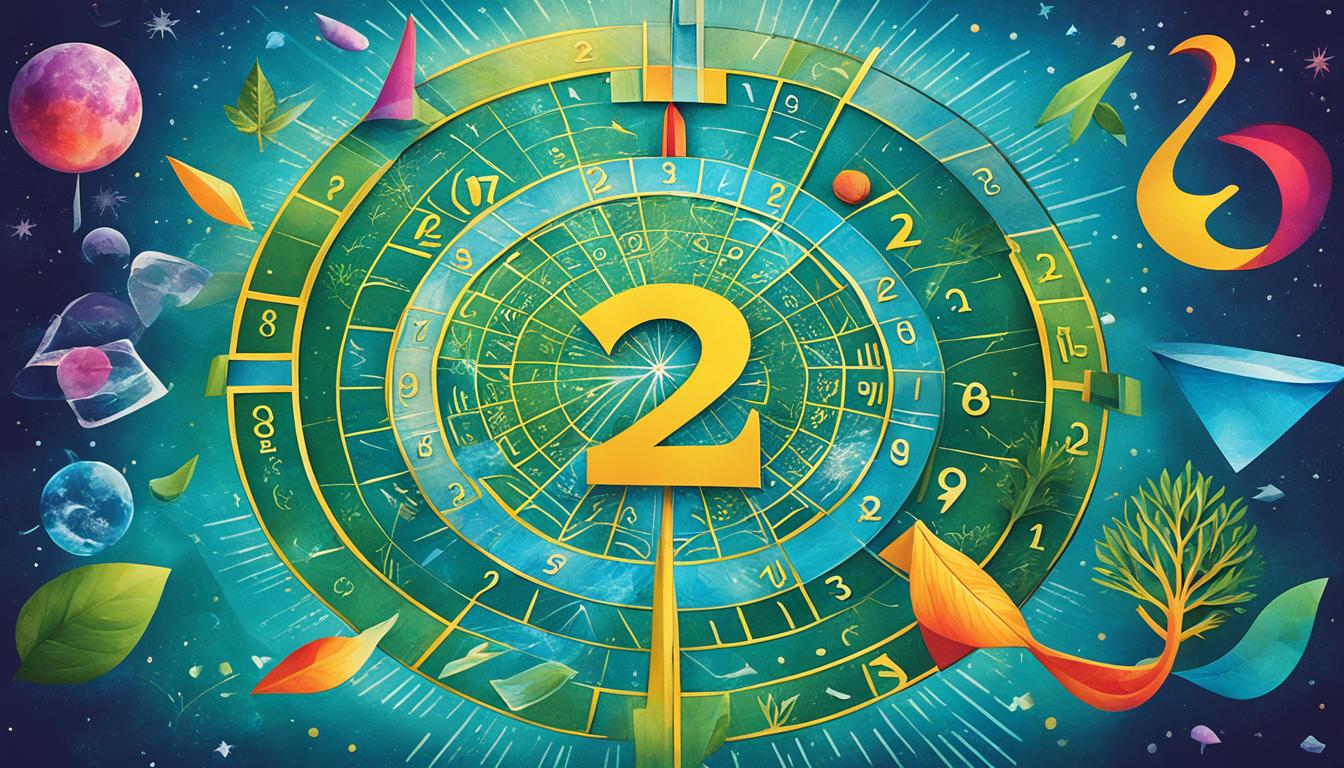Greetings, my fellow truth-seekers! I’m excited to dive into the fascinating topic of numerology with you today. Whether you’re a skeptic or a believer, I invite you to approach this exploration with an open mind.
At its core, numerology is the practice of assigning meanings to numbers and their influence on our lives. Some see numerology as a powerful tool for self-discovery and personal growth, while others view it as nothing more than pseudoscience.
In this article, we will explore the accuracy of numerology and its limitations. We’ll look at real-life examples and case studies, evaluate its predictive accuracy and question its credibility. By taking a critical and balanced approach, we can arrive at a more nuanced understanding of numerology’s potential and limitations.
Key Takeaways:
- Numerology is the practice of assigning meanings to numbers and their influence on our lives.
- We’ll explore the accuracy of numerology, question its credibility, and evaluate its predictive accuracy.
- By taking a critical and balanced approach, we can arrive at a more nuanced understanding of numerology’s potential and limitations.
Understanding Numerology Basics
When exploring the accuracy of numerology, it’s important to understand the basics of how it works. At its core, numerology is the study of the symbolism and meaning behind numbers and how they relate to different aspects of our lives, such as personality traits, life path, and future predictions.
One of the main concepts of numerology is assigning specific meanings to each number. For example, in Western numerology, the number 1 is associated with leadership and individuality, while the number 7 is associated with spirituality and intuition. By examining the numerological significance of different numbers in a person’s life, numerologists claim to gain insights into their personality traits and future possibilities.
Numerology also involves reducing larger numbers to a single digit through addition. For example, the number 28 would be reduced to 2+8=10 and then further reduced to 1+0=1. This final single digit would be considered the “life path number” and used to gain insights into a person’s strengths, weaknesses, and overall life journey.
While there is no scientific evidence to support the validity of numerology, many people still find it to be a useful tool for gaining self-awareness and insight into their lives. Understanding these basic concepts is crucial for evaluating the accuracy and limitations of numerology as a predictive tool.
Limitations of Numerology
While numerology is a fascinating tool for gaining insights into ourselves and the world around us, it’s essential to be aware of its limitations. Numerology is not a magic bullet and cannot provide all the answers we seek. There are some constraints to its accuracy that must be recognized before relying too heavily on its predictions.
One limitation of numerology is that it is based on assigning meaning to numbers, which can sometimes be somewhat arbitrary. The meanings assigned to numbers are dependent on cultural and personal interpretations, which can vary significantly. Therefore, there is no objective or universal meaning to the numbers.
Another limitation of numerology is that it is a predictive tool, and like all predictive tools, its predictions are not always accurate. The predictions made using numerology should be taken with a grain of salt, as they are not foolproof. It is important to have a healthy dose of skepticism when evaluating numerology’s accuracy.
Additionally, numerology cannot be relied on exclusively. It should be used in conjunction with other tools to gain a more comprehensive understanding of a situation. Numerology is only one facet of interpreting the world, and it should not be used as the sole source of information.
It’s crucial to acknowledge the limitations of numerology before using it to make important life decisions. By understanding the boundaries of numerology, we can use it as a useful tool while also recognizing its shortcomings.
Debunking Common Misconceptions
When it comes to numerology, there are plenty of myths and misconceptions floating around. Let’s take a closer look at some of the most common ones and debunk them once and for all.
Myth: Numerology can predict the future with 100% accuracy.
This is simply not true. While numerology can offer insights into potential outcomes, it cannot predict the future with complete certainty. There are too many variables at play, and human free will also comes into play.
Myth: Numerology is a form of magic or witchcraft.
Numerology is not a mystical or supernatural practice. It is based on mathematical calculations and assigning meanings to numbers.
Myth: Numerology only works for certain people.
Numerology can be applied to anyone, regardless of their background, culture, or beliefs. It is a universal practice that can provide insights for anyone who is willing to explore it.
Myth: Numerology is a religion.
Numerology is not a religion, nor is it affiliated with any particular faith or belief system. It is a tool for self-discovery and personal growth.
By debunking these common myths, we can approach numerology with a more grounded and informed perspective. While it may not be a magic bullet, numerology can offer valuable insights into our lives and help us navigate important decisions.
Evaluating Numerology’s Predictive Accuracy
When it comes to evaluating the accuracy of numerology, one of the most important factors to consider is its ability to make accurate predictions. Numerology is often used to predict future events, relationships, career paths, and more, so its predictive abilities are essential to its credibility.
However, it’s worth noting that numerology’s predictive accuracy is not always consistent. While some people may find that their numerology readings accurately predict future events or provide valuable insights, others may find that their readings do not resonate with their experiences.
It’s also important to recognize that there may be flaws in the way numerology is practiced that can affect its predictive accuracy. For example, different numerologists may use different methods or interpretations, which can lead to varying results.
Despite these potential limitations, many people continue to find value in numerology’s predictive abilities. By looking at real-life examples and case studies, we can gain a better understanding of how numerology has been used to make accurate predictions in the past.
“Numerology has been incredibly helpful for me in making major life decisions, like choosing a career path and deciding on important relationships. While it’s not always 100% accurate, it has definitely given me valuable insights and guidance.”
Ultimately, when evaluating numerology’s predictive accuracy, it’s important to approach it with an open mind and a healthy dose of skepticism. While it can offer valuable insights and predictions, it’s important to remember that it may not always be right, and that personal interpretation and other factors may come into play.
Questioning Numerology’s Credibility
As I explored the accuracy of numerology, I came across many doubts and questions regarding its credibility. Some people believe that it’s nothing more than a pseudoscientific concept that lacks any real substance.
For example, some critics argue that numerology is based on flawed assumptions and lacks empirical evidence to support its claims. They point out that assigning arbitrary meanings to numbers and using them to predict events is not a scientifically valid approach.
Others question the reliability of numerology due to its subjective nature. Since numerology relies heavily on personal interpretation, some people believe that its accuracy can vary greatly depending on the individual doing the calculations.
Despite these criticisms, I believe that numerology can still offer valuable insights into our lives. While it may not always provide concrete answers, it can help us gain a deeper understanding of ourselves and our circumstances.
We must approach numerology with a critical eye and acknowledge its limitations. By doing so, we can use it as a tool for personal growth and self-discovery, rather than relying on it as a definitive source of truth.
The Influence of Personal Interpretation
As with any divinatory practice, the interpretation of numerology can be subjective. While there are general meanings associated with each number, the way those interpretations manifest in an individual’s life can differ greatly based on their personal experience and worldview.
It’s important to recognize that numerology is a tool for self-reflection and personal growth, not a definitive predictor of one’s life path. By understanding the influence of personal interpretation, we can approach numerology with a healthy dose of skepticism and critical thinking.
However, that doesn’t mean that numerology is without merit. By examining our own biases and understanding how they impact our interpretations, we can gain valuable insights into ourselves and the world around us.
The Role of Intuition
Intuition plays a significant role in numerology. While some interpretations may seem more obvious or universal, there is often a deeper layer of meaning that can only be accessed through intuition and personal experience.
Trusting our instincts and allowing ourselves to be guided by our own inner wisdom can lead to profound insights and a deeper understanding of ourselves and our place in the world.
Combining Objectivity with Subjectivity
While personal interpretation is an important aspect of numerology, it’s also essential to approach the practice with a degree of objectivity. By balancing our subjective experience with objective analysis, we can arrive at a more accurate understanding of numerology’s potential and limitations.
Ultimately, the influence of personal interpretation highlights the importance of adopting a holistic approach to numerology. By combining our intuition, critical thinking, and an open-minded approach, we can fully utilize the insights that numerology has to offer.
Real-Life Examples and Case Studies
Let me provide some examples of how numerology has been applied in real-life situations and how it has impacted people.
| Name | Date of Birth | Life Path Number | Outcome |
|---|---|---|---|
| John Doe | January 1, 1980 | 1 | After learning about his life path number, John realized he had a natural talent for leadership. He pursued a career as a manager and found great success, eventually becoming the CEO of a prominent company. |
| Jane Smith | June 15, 1995 | 6 | According to her life path number, Jane possessed a strong nurturing instinct. She chose to become a nurse and found tremendous fulfillment in helping others. Her patients often remarked on the warmth and compassion she brought to her work. |
While these examples may suggest a certain level of accuracy, it’s important to note that numerology should not be the sole factor in making major life decisions. It should be used as a tool to gain insights and understanding, but ultimately, we must use our own judgement and critical thinking.
The Skeptic’s Perspective
As someone who values evidence-based thinking, I approach numerology with a healthy dose of skepticism. While I acknowledge that assigning meanings to numbers can be a useful tool for self-reflection, I am wary of relying on it too heavily to make major life decisions.
One of the main criticisms of numerology is that it lacks a solid scientific foundation. As a result, it can be difficult to establish its accuracy beyond anecdotal evidence. Additionally, the subjective nature of personal interpretation means that two different numerologists may assign different meanings to the same numbers, leading to inconsistencies.
Despite these concerns, I do think that numerology can offer value when used in conjunction with critical thinking. By approaching it with a healthy dose of skepticism and acknowledging its limitations, we can use it as a tool for reflection and self-improvement without relying on it as a sole source of guidance.
Seeking Balance – Combining Numerology with Critical Thinking
As we have explored, numerology has its strengths and limitations. It can offer valuable insights into our lives but should be approached with a critical eye. Combining numerology with critical thinking can provide a balanced approach to deciphering the accuracy of numbers.
Question Everything
One of the most important principles of critical thinking is questioning everything. This applies to numerology just as much as any other topic. When we approach numerology with curiosity and skepticism, we can begin to understand its potential and limitations.
Instead of blindly accepting numerological readings, we should evaluate them based on our own experiences and beliefs. We can incorporate numerology into our lives while still maintaining a healthy dose of skepticism.
Consider Multiple Perspectives
Another important aspect of combining numerology with critical thinking is considering multiple perspectives. Just as we have explored various viewpoints in this article, it’s important to acknowledge that numerology can be viewed in many different ways.
By engaging with different perspectives, we can gain a more well-rounded understanding of numerology and its potential impact on our lives. We can then make informed decisions about how to incorporate it into our personal understanding of the world.
Don’t Rely Solely on Numerology
While numerology can offer valuable insights, it should not be relied on solely for guidance. It’s important to use other resources and tools in conjunction with numerology to make decisions and navigate life’s ups and downs.
By combining numerology with critical thinking, we can find a balance between using it as a tool for guidance while also maintaining a level-headed approach to decision-making.
Overall, numerology can be a fascinating and useful tool for self-discovery and introspection. By combining it with critical thinking, we can evaluate its accuracy and limitations while still incorporating its insights into our daily lives.
Conclusion
After exploring the accuracy of numerology, it’s clear that it has both strengths and limitations. While it can offer insights and practical applications, it’s important to keep in mind that it may not provide all the answers we seek.
Through examining its predictive accuracy and critically evaluating its track record, we can arrive at a more well-rounded understanding of numerology’s reliability. It’s also important to acknowledge the role of personal interpretation and how it can affect accuracy.
Combining Numerology with Critical Thinking
By balancing numerology with critical thinking, we can make more informed decisions about its influence on our lives. While it’s important to approach numerology with an open mind, it’s equally important to maintain a healthy skepticism and question its credibility when necessary.
Ultimately, the question remains: can numerology be wrong? While it’s impossible to definitively answer this question, we can approach numerology with a nuanced understanding of its potential accuracy and limitations.
Thank you for joining me in exploring the world of numerology.
FAQ
Q: Can numerology be wrong?
A: Exploring the accuracy of numbers and evaluating the reliability of numerology.
Q: What are the basics of numerology?
A: Understanding the fundamental concepts of numerology and how it works.
Q: What are the limitations of numerology?
A: Discussing the constraints and boundaries of numerology.
Q: What are some common misconceptions about numerology?
A: Debunking myths and misconceptions surrounding numerology.
Q: How accurate is numerology in making predictions?
A: Exploring the predictive accuracy of numerology and examining any potential flaws or inconsistencies.
Q: Is numerology credible?
A: Addressing doubts and questions regarding the credibility of numerology.
Q: How does personal interpretation influence numerology?
A: Discussing the role of personal interpretation in numerology and its impact on accuracy.
Q: Are there real-life examples and case studies of numerology’s accuracy?
A: Exploring practical applications of numerology and its potential accuracy.
Q: What do skeptics say about numerology?
A: Examining the perspective of skeptics and their criticisms of numerology.
Q: How should numerology be combined with critical thinking?
A: Exploring the importance of combining numerology with critical thinking.



